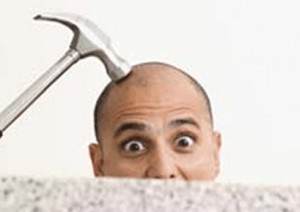Tomorrow I get on another plane to another city — this time San Francisco. It’s time to go cover the RSA and B-Sides security events. I used to be a raving lunatic the day before a flight. Not anymore. Still, I feel uneasy this morning.
Mood music:
[youtube=http://www.youtube.com/watch?v=jwzGvMwO-yg&fs=1&hl=en_US&rel=0]
My mind has been raw all week for a multitude of reasons. Mostly, it’s a case of winter getting to me. The sun is setting later each day, which is good for me, but the cold and snow have done their damage and plunged me into a depression.
I’ve pushed myself hard with work and at home I’ve been a slug. I forget to do simple things and I just want to collapse on the couch. I sigh a lot and swear even more.
It’s not fair to my family. But I can’t seem to help it.
On a positive note, I’ve kept my recovery intact. That’s real progress, because this kind of mindset used to make me binge my brains out. Those days were so much worse.
That doesn’t make me satisfied about my current state of mind.
On one hand, I’m excited for the coming trip. I love the fast and furious writing and the copious networking that gets done. I love seeing friends I usually only see on Twitter and Facebook.
On the other hand, I feel terrible about abandoning my family for four days.
It’ll all work out. I know this. But the uneasiness is still there.
I don’t dive into bouts of self-hatred in moments like this like I used to, and that’s very good. I’ve learned to see this mood for what it is: A mild-to-moderate depression that hits after a serious lack of sunlight. Duncan suffers from it, too, though not in the same ways.
It’s just something we have to keep working on.
The depression hit me later this time than it usually does in winter. The happy lamp, proper Prozac dosage and program of recovery have served me well. But I’m starting to realize I’ll probably never be able to go an entire winter without feeling this way.
Tough shit. That’s my cross to carry, and I just have to keep getting better at managing the load without complaint and without becoming useless to those around me.
My Faith will see me through. 
My wife and kids will see me through, even if they’re not happy with my impending travel at the moment.
The 12 Steps of Recovery will see me through.
And once I get to San Francisco, the work at hand will see me through.



